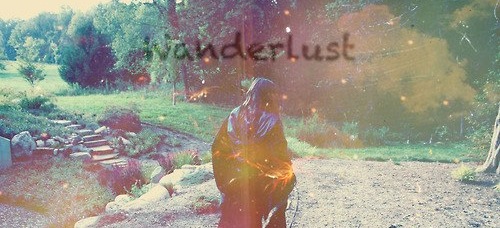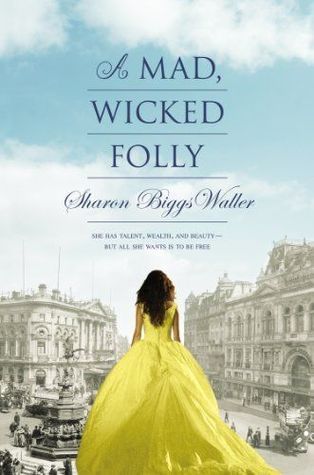Series: None
Published: January 23, 2014
Publisher: Viking
Page: 384

Welcome to the world of the fabulously wealthy in London, 1909,where dresses and houses are overwhelmingly opulent, social class means everything, and women are taught to be nothing more than wives and mothers. Into this world comes seventeen-year-old Victoria Darling, who wants only to be an artist—a nearly impossible dream for a girl.I think, in order to help you understand what this book is about (because I most certainly had the wrong idea), it would help for me to explain the origination of the title.
After Vicky poses nude for her illicit art class, she is expelled from her French finishing school. Shamed and scandalized, her parents try to marry her off to the wealthy Edmund Carrick-Humphrey. But Vicky has other things on her mind: her clandestine application to the Royal College of Art; her participation in the suffragette movement; and her growing attraction to a working-class boy who may be her muse—or may be the love of her life. As the world of debutante balls, corsets, and high society obligations closes in around her, Vicky must figure out: just how much is she willing to sacrifice to pursue her dreams?
The title is derived from a quote from Queen Victoria:
I am most anxious to enlist everyone who can speak or write to join in checking this mad, wicked folly of "Women's Rights," with all its attendant horrors... Were women to "unsex" themselves by claiming equality with men, they would become the most hateful, heathen, and disgusting of beings and would surely perish without male protection.Now just let that sink in for a moment.
Honestly, I think the cover did a good job misleading me here. I thought this would be a more modern, not so realistic Edwardian novel. I was very wrong in that respect. The dialogue between characters is spot on, the atmosphere right, and historical context accurate. Perhaps the only thing that could be said in that department is that the romance is a touch too modern...except this is a book that is dealing with an artist in all her rights, and people are human. No matter how much the people who wrote history at the time tried to shush it up, desire and lust and romance was just as real back then as now. So, I dislike the cover because it makes this book look like some cliché period novel for teens, when it is not.
I read this for a light read. I haven't been able to sit down recently and just devour all my books, I haven't possessed that desire really at all this summer. So I did what I normally do. Stopped what I was currently reading, browsed the list of books I'd marked off as good to read thanks to world of mouth, blogs, etc., and picked A Mad, Wicked Folly after some consideration. I was looking for light, easy, and just fun. More often than not, this disappoints me (I think I'm finally figuring out I never want light, easy, or just fun when it comes with nothing to learn from). But clearly, this was not one of those times. I was surprised. Surprised because everything from the plot, characters, setting, and dialogue were not as I expected them to be.
Victoria was a pleasant surprise (and I can not everyone agreeing with me on that). She's an incredibly flawed character. But as anyone who's read my other views, you'll know that I like this because it leaves the opportunity for character growth (of course, the author actually has to take that path, and they don't always).
But Waller did! And it's beautiful because it's so real and raw, and I loved seeing someone who's clearly struggling come to the realization of why, and fixing it and learning, and all these beautiful things that I'm clearly having trouble expressing because it was beautiful.
If I have one issue with this book, it is how it handles the Suffrages. Waller is clearly well informed on the subject (she even has a fantastic list of sources and short compilation of information at the end that I recommend everyone read! It's so good!). That's not my issue. My issue (and this basically is my issue with anything in life) is the extremist nature of some of the suffragettes. One particular issue that comes up is (spoiler! highlight to see) the force feeding. Let me be clear on this. This is a deadly act of protest that causes personal injury. It is done in the name of getting the attention of people and newspapers. Does it work? Yes, and don't get me wrong, I'm very glad it did. In fact, I'm glad for everything these women achieved. I am not, however, always glad of their means of achieving. I'm a very big Martin Luther King, Jr. and Ghandi fan. To fight for rights through peace, not violence. The suffragettes were not. The author portrays this wonderfully. My problem is not that, I don't think Waller should have ignored that. My problem is that she endorses it. Now, I realize this is a personal opinion, wholeheartedly. So if you're someone who thinks vandalizing and destroying personal property, along with self subjection to bodily harm is the way to get things done, then go for it. But if you're not, I'm warning you of possibly being offended. I do not deny the bravery and determination of the women from that time, and again, Waller portrays this perfectly. I simply question the morality. Or not so simply since I believe this is a big issue. The fact is, though, the whole face of the word "feminism" is touch and go these days. So much scandal erupts over people who identify with it and people who don't. The latest example being Shailene Woodley. Basically (and I'm sorry for this tangent, but it's just relevant to my feelings about the book) very few people actually say that women deserve less than men. But why this negative connotation for the word that makes so many people reluctant to attach themselves to it? I think a large part of it is because the early suffragettes and their successors did not use morally sound actions all the time. What they achieved was so good. But a lot of the time, people read about what they did and feel something wrong about it, which is horrible because it really is a great cause. I find it so curious that Woodley uses the word "power" in that interview. I think she's very much correct in seeing this fight as a power struggle, and wanting to be removed from that. History has turned this battle into something related to power. But it shouldn't be, it should be about human dignity, of which everyone is deserving. And my end comment to this horribly long rant is that I disagreed with Waller's approach to celebrate people taking dignity from others for the sake of their own. Fighting fire with fire only creates a bigger fire.
Besides that one small matter with the suffragettes, this book was highly enjoyable. And I don't want anyone to walk away from here thinking that this is a politically stifling book - it's not, I just chose to focus my review on that one small aspect because it struck a chord with me. Everything was presented reasonably and logically, which did attract me, and makes me sympathetic towards to book in that particular issue. Notice I only docked one star, and that is because even if I highly disagreed with that one thing, it was small in the book, and out shined by its other remarkable aspects, for which I highly recommend people to pick up.



No comments:
Post a Comment